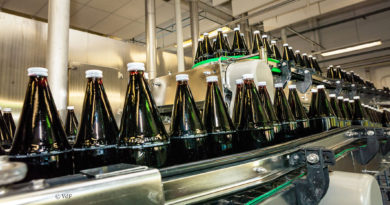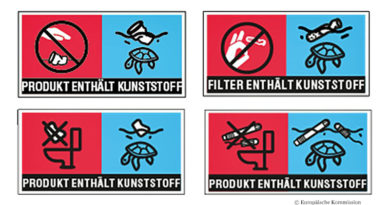VDMA: Prices for Recyclates Must Fall
In a discussion paper entitled “For the Sustainable Use of Plastics – Pro Circular Economy”, the German Engineering Federation VDMA calls for greater use of recycled plastics.
The mechanical and plant engineering sector is committed to creating a genuine circular economy for plastics. This is why the VDMA is also in favor of product-specific use quotas for recyclates, it says. This would allow plastics to be used multiple times and relieve the CO2 balance. “The aim is to realign the raw materials markets and make the use of recyclates more attractive in terms of price. Until now, they have been more expensive than newly manufactured plastics because their production is based on the very favorable crude oil prices,” the association explains.
The VDMA has set out its arguments in the discussion paper “For the Sustainable Use of Plastics – Pro Circular Economy”. The paper was jointly prepared by several VDMA trade associations, including Waste and Recycling Technology and Plastics and Rubber Machinery, and the Technology, Environment and Sustainability Department. The paper was prompted by the ambitious climate protection and resource conservation targets defined by the EU as part of the Green Deal, which aim to achieve climate neutrality by 2050. The discussion paper is a basis for discussions with politicians, but also within the plastics industry.
In its discussion paper, the VDMA also suggests quality standards for recyclates, as well as design for recycling for plastic products and digital identifiability of used plastics. It also calls for an export ban on plastic waste from the EU to third countries with lower environmental regulations.
In detail: the price issue
Excerpts from the VDMA position paper: “A functioning market for the use of recycled plastics is crucial for the success of the circular economy. This concerns both the quantity, the quality and the price structure. This market is under pressure because the price of virgin plastic (primary plastic) is volatile and sometimes cheaper than that of recyclates (secondary plastic). The primary plastic price is strongly influenced by the fluctuating oil price. This puts considerable pressure on the recyclate market. This could be remedied by appropriate carbon pricing.”
“The CO2 backpack of recyclates is 1.5 to 3.2 tons lighter per ton of plastic relative to virgin material. If this positive carbon footprint were included, parity between primary and secondary plastics could be established. This is the market-based instrument of choice but has been left unconsidered for many years.”
As long as price parity between primary and secondary plastics has not been established, a temporary recyclate use quota differentiated by application should be introduced, he said. This would allow the market to be realigned and the price imbalance between recyclates and virgin materials to be better balanced. The design of the quotas should be gradual and dynamic, starting with simple use cases outside of food packaging where standard plastics (PE, PP, PET, PS and PVC) are used, VDMA demands.
“A good starting point could be the other packaging sectors. A consistently enforced quota regulation will lead to more use of recyclates in the market, despite higher costs and additional effort in processing. At the same time, it will promote the material development of recyclates towards better qualities,” it says. However, it is important that the quota regulation and market monitoring apply throughout Europe and are implemented quickly.




